U Khin Yi, a former Myanmar military general and the junta’s Immigration and Population Minister, organized a series of rallies before and after the February 1 coup during which so-called military sympathizers went on the rampage in Yangon, punching and stabbing those who denounced them, according to U Soe Thane, a former minister in U Thein Sein’s government.
Before the coup, U Khin Yi was the vice chair of the military’s proxy Union Solidarity and Development Party (USDP), which suffered a heavy defeat in the 2020 general election. The former Brigadier General and Myanmar Police chief was appointed Immigration and Population Minister in the junta’s so-called interim government six months later.
Some 22 pro-military demonstrations between January 21 and February 25 were organized by U Khin Yi, 11 rallies before the coup and 11 afterwards, according to the second volume of U Soe Thane’s book The Second Democratic Government and Myanmar. U Soe Thane was a USDP candidate in the 2020 general election and he dedicates a section of his book to what he calls “U Khin Yi’s efforts”, in which he details where the pro-military rallies took place and how many people participated in them.
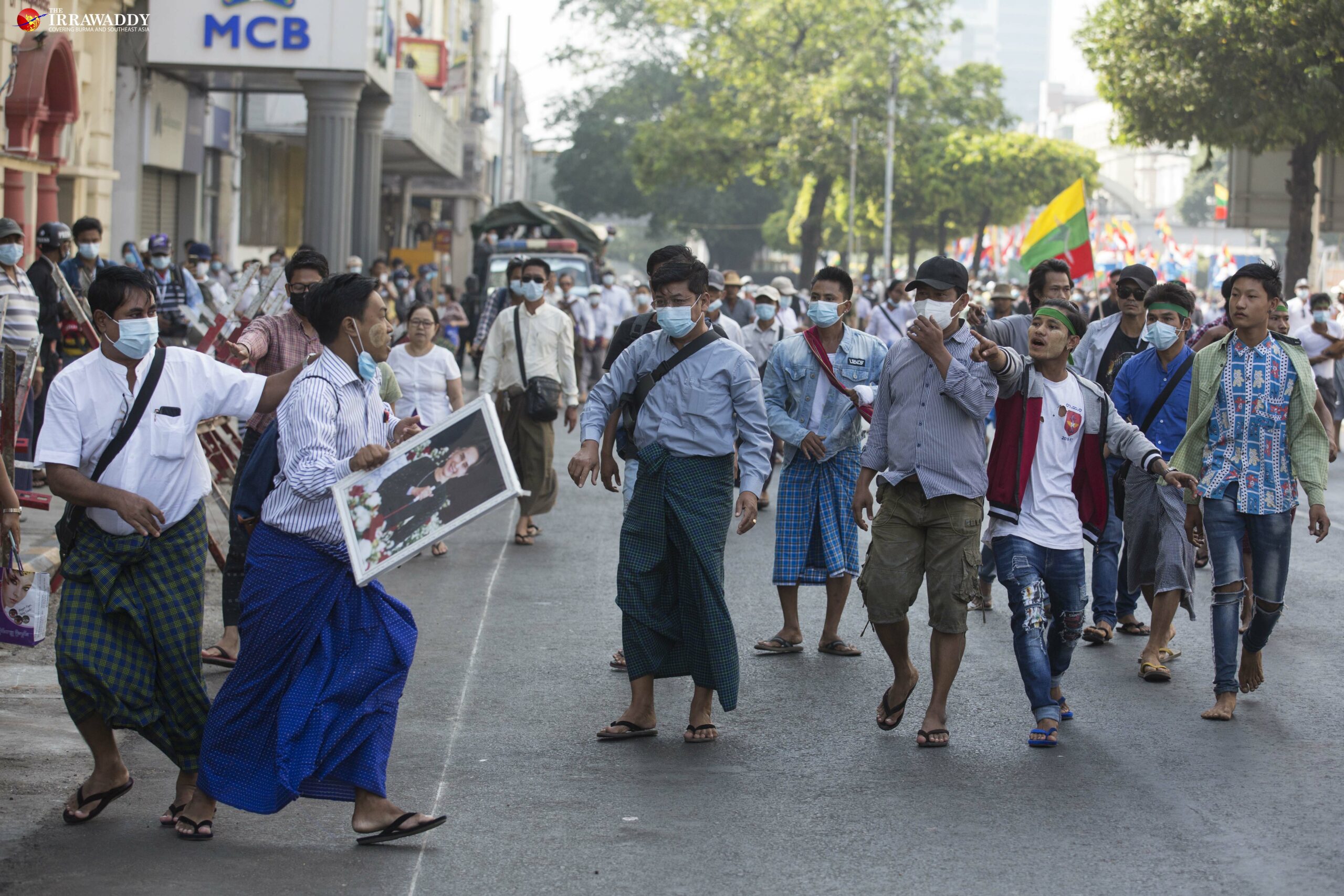
The rallies targeted the Union Election Commission (UEC), following its announcement of the National League for Democracy (NLD) Party’s landslide victory in the 2020 poll. But anyone who witnessed those rallies will have noted that the hundreds of people participating in them shouted only pro-military slogans.
“The most vocal demonstrations against the UEC were seen consecutively in cities in southern Myanmar. The main organizer was U Khin Yi,” wrote U Soe Thane in his book.
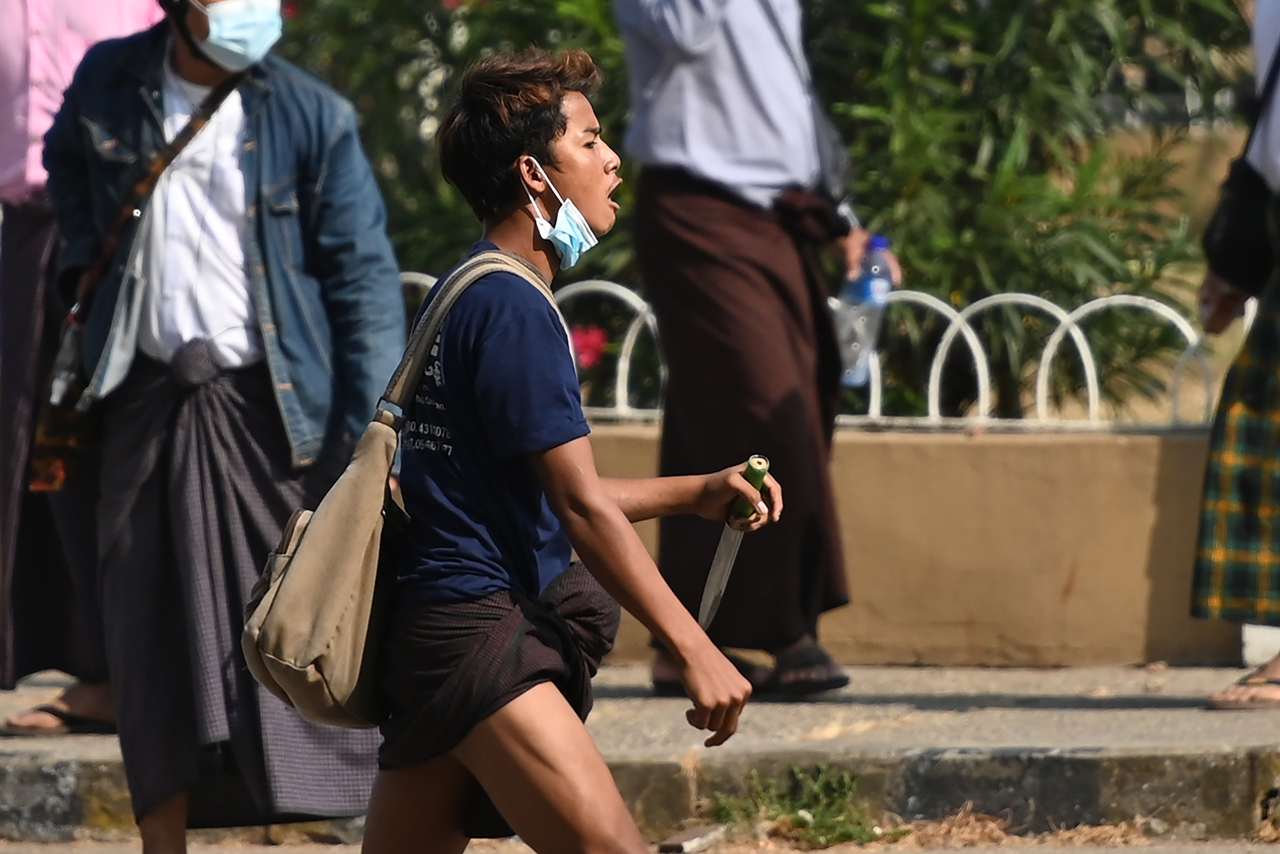
On January 30, a crowd of pro-military marchers beat passers-by and onlookers near Yangon’s Bahan Market. The following day, they burned NLD flags on display at a printing shop on Shwegondaing Road in Yangon’s Bahan Township.
After the coup, those anti-UEC demonstrations became blatantly pro-military or pro-coup rallies, according to U Soe Thane.
During one pro-junta rally in downtown Yangon on February 25, supporters of the military beat and stabbed people after they were booed by bystanders. Some ten people were injured in the attack. The pro-junta groups carried both Myanmar and military flags, as well as banners proclaiming their support for the junta, and also carried clubs which they used to smash car windows.
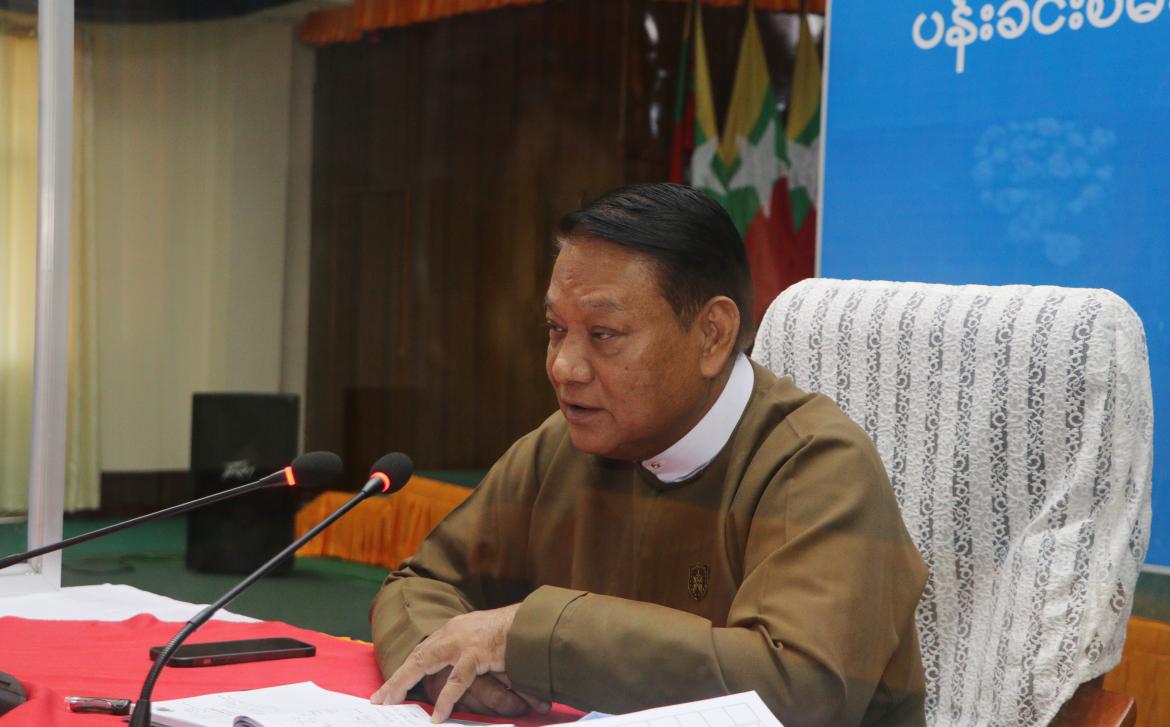
“On February 25, 2021, USDP members from East, South and North districts of Yangon, party supporters, Tatmadaw [Myanmar military] sympathizers and nationalists gathered at President Cinema, Aung San Stadium and Yangon Central Railway Station in Dagon Township, and marched along Sule Pagoda Road to Sule Pagoda and returned to original gathering points, showing overwhelming support for the Tatmadaw,” U Soe Thane wrote in his book. However, he did not mention that the pro-military marchers attacked the people who jeered them.
Eight pro-military participants were held by a charity group following the February 25 attack and revealed that they were from Seikgyikanaungto Township in Yangon’s south district, where U Khin Yi had failed to be elected in the 2020 general election, according to widely-circulated videos. They admitted that they were taken by two USDP members to join the protest march.
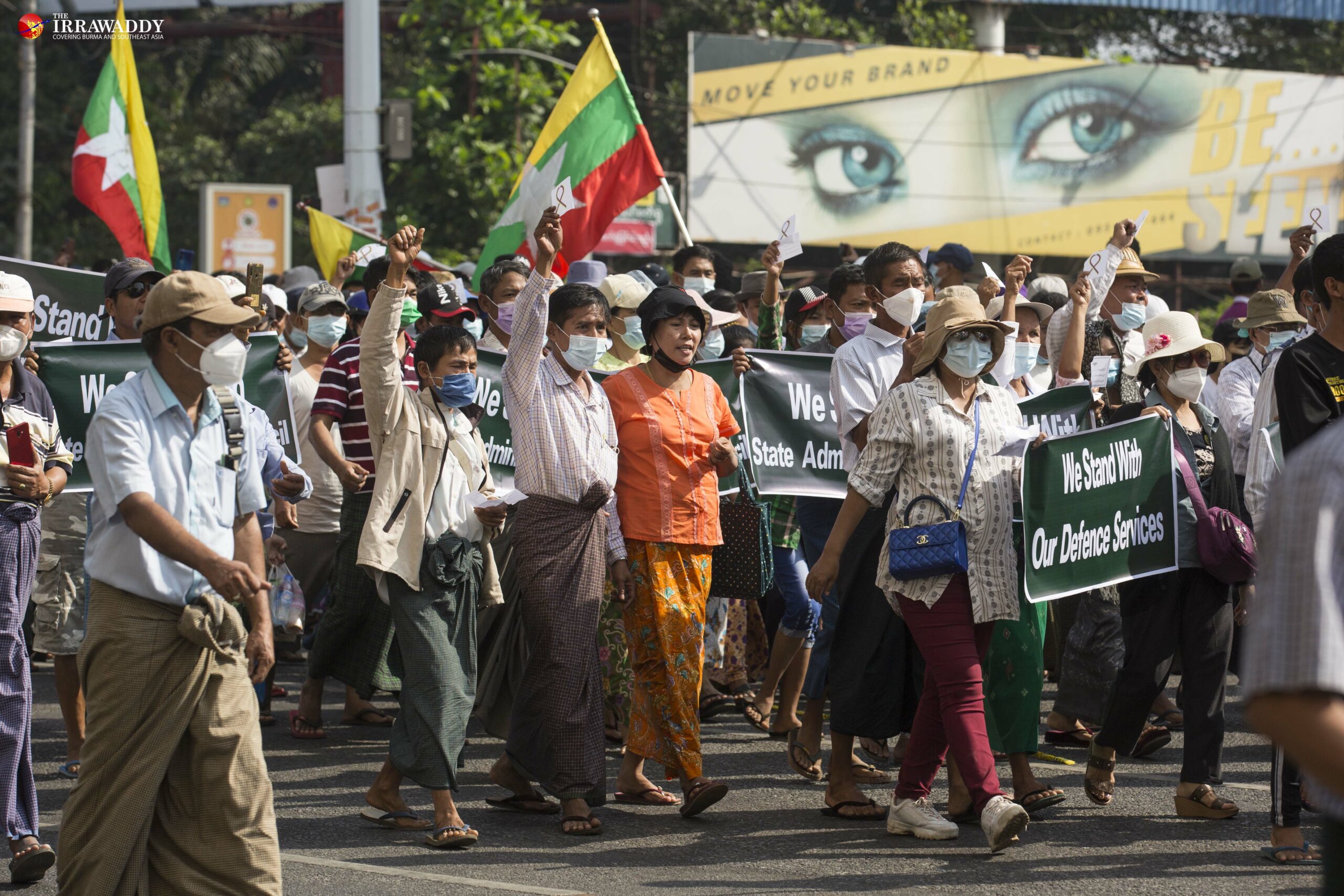
According to record books dropped at the scene, many of the participants were believed to be hired to attend the rally, and paid a wage of 3,000 to 7,000 kyats (US$2.10-US$5) each for their presence. Another widely-circulated video shows a USDP official telling a man that he would pay him 20,000 kyats (US$14) if he could bring a truck full of people to the rally.
However, there were no pro-junta rallies for several months after the February 25 demonstration that ended in violence and bloodshed.
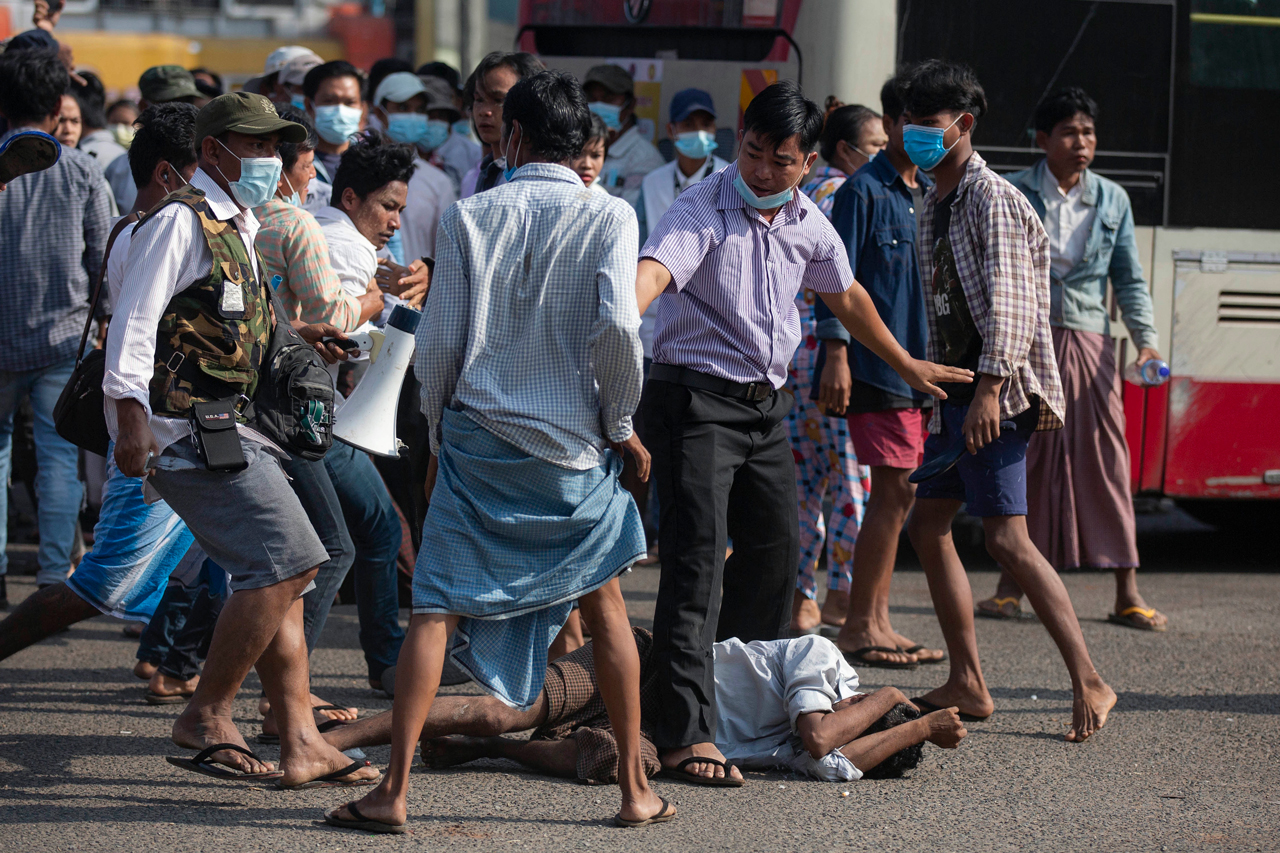
While U Khin Yi is the main organizer of pro-military rallies in southern Myanmar, former Lieutenant General Wai Lwin, who served as deputy defense minister in U Thein Sein’s government and failed to be elected for Naypyitaw’s Pobbathiri Township in both the 2015 and 2020 general elections, is assigned to organize rallies in the Myanmar capital Naypyitaw, wrote U Soe Thane.
U Khin Yi was appointed as Myanmar Police chief under the former military regime led by the dictator Senior General Than Shwe. He oversaw the brutal crackdown in 2007 on the nationwide anti-regime protest movement known as the Saffron Revolution. Subsequently, U Khin Yi served as Immigration and Population Minister in U Thein Sein’s quasi-civilian administration, the same position he now holds in the junta’s ruling body. He contested the seat for his native Myaungmya Township in Ayeyarwady Region in the 2015 general elections, but lost. In the 2020 poll, U Khin Yi contested Yangon’s Seikgyikanaungto Township but was again defeated.
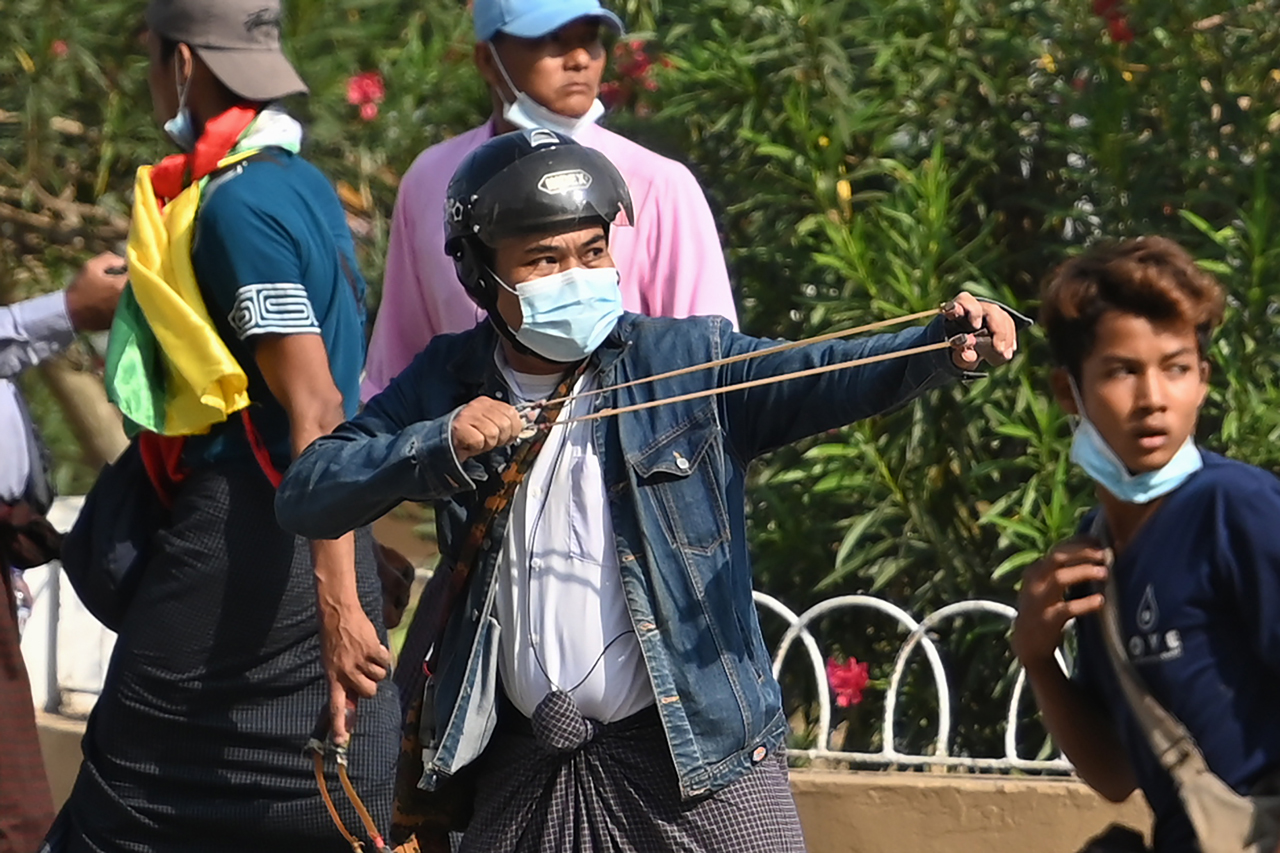
You may also like these stories:
Executives of S. Korean Companies Met Myanmar Junta Officials: Report
Villagers Flee Myanmar Junta Raids Near Thai Border
China Facilitates Myanmar Junta and Ethnic Armies’ Talks
















